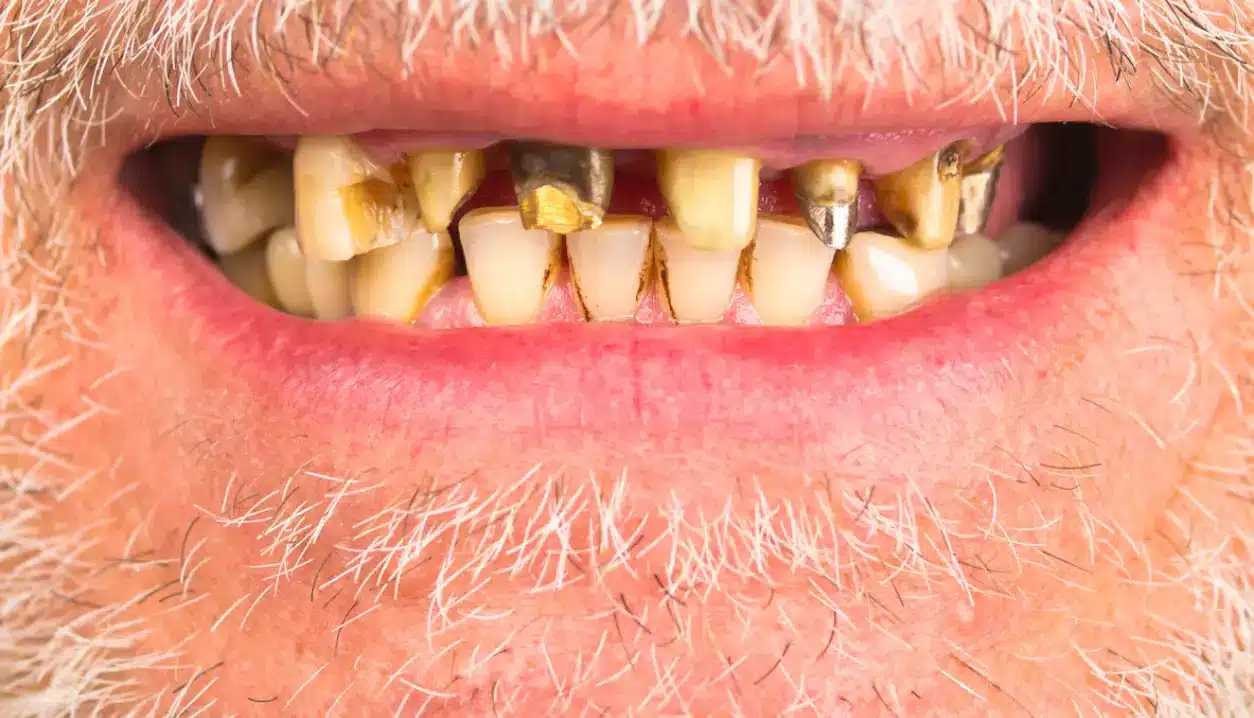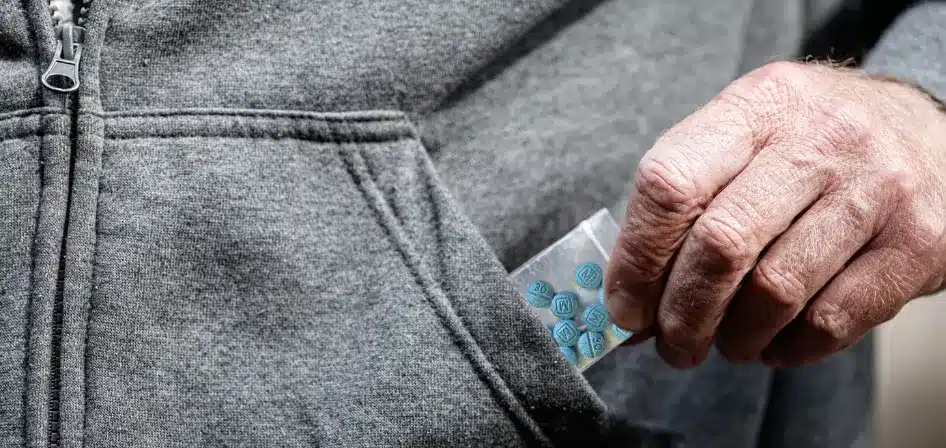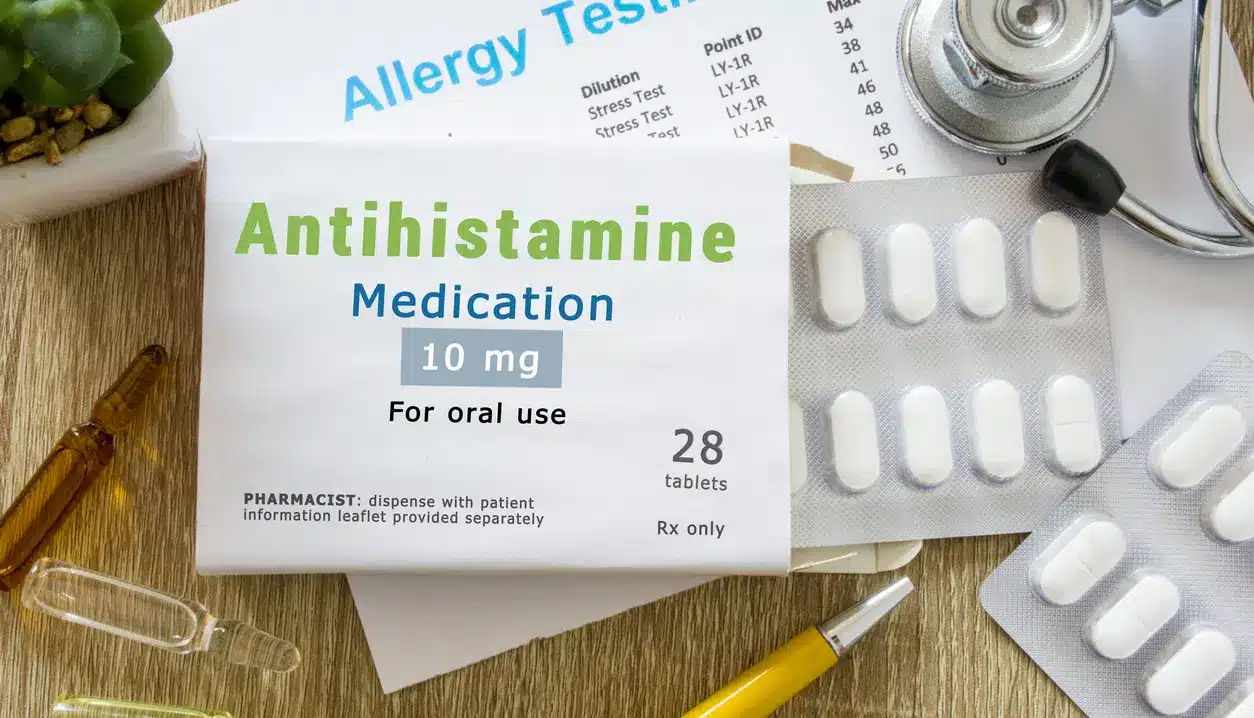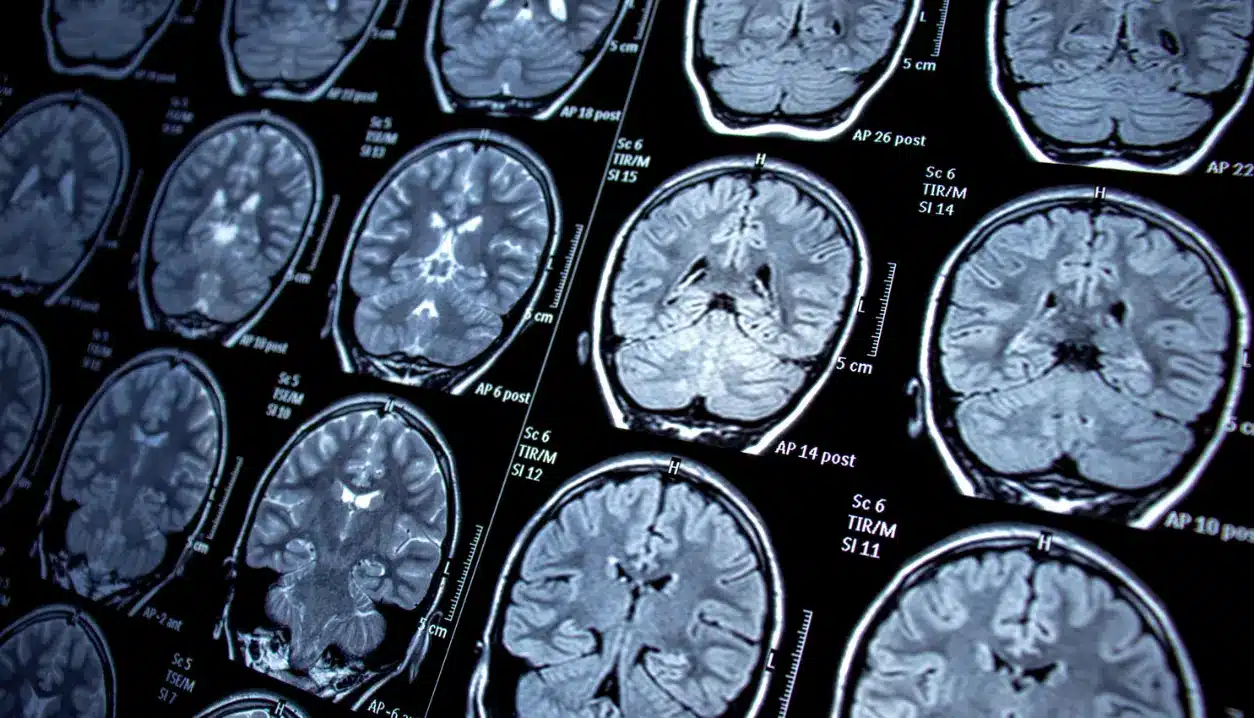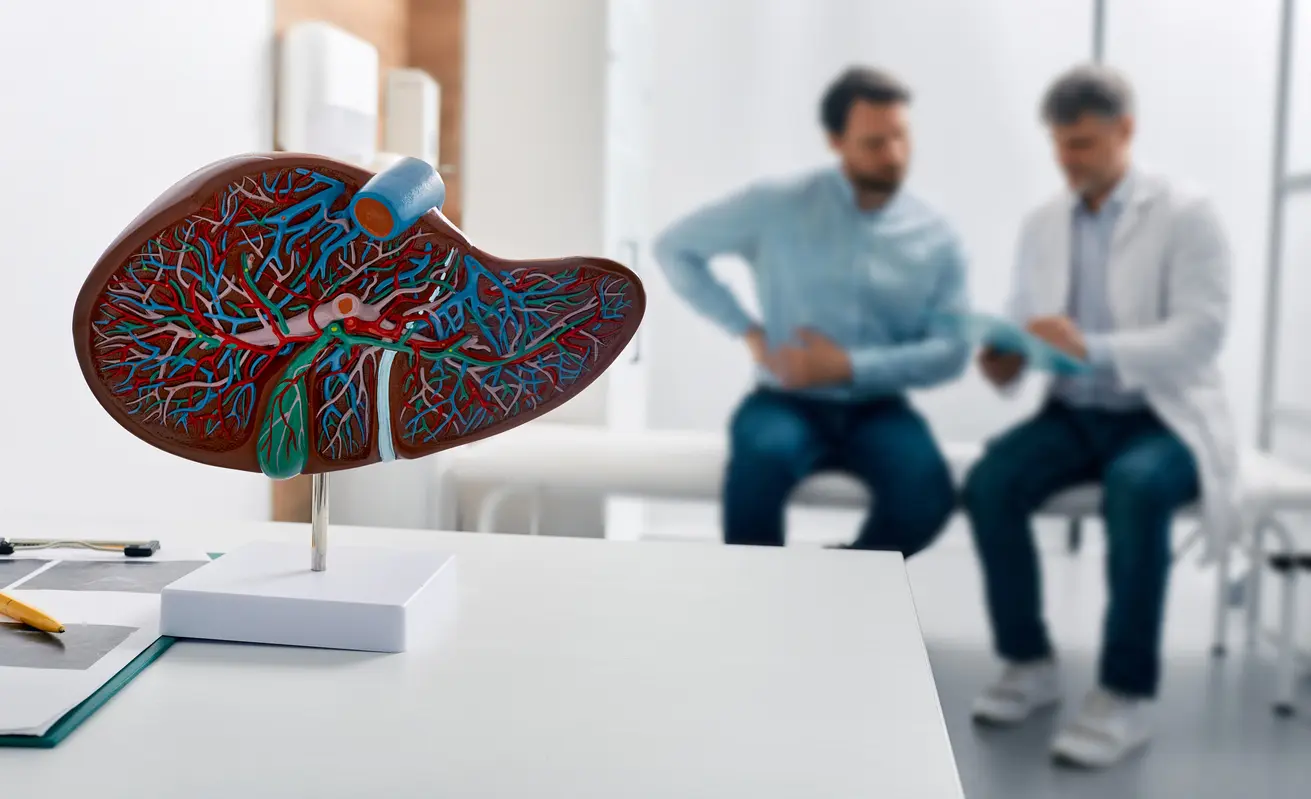Cough Syrup Addiction Treatment Rehab
Over-the-counter medicines can be just as addictive as prescriptions. Get the help you deserve - call our team at Ocean Recovery for advice on addiction treatments Get Help Now
By John Gillen - Last Updated: December 22, 2023
Clinically Reviewed on October 26, 2023 by Dr Adel Ghaly. All information on this page has been reviewed and verified by a certified addiction professional.

Cough syrup is a cheap and readily available substance that is open to addiction use. Most of us use cough syrup for our tickly or sore throats during cold and flu seasons. However, long-term use can sometimes create tolerance and addiction to the syrup.
So what exactly is cough syrup, and what can make it dangerous to your health? Cough syrup with dextromethorphan (DXM) or similar opioid-containing substances can be toxic when overused and create many health problems. In addition to DXM, you will also find codeine, dihydrocodeine or diphenhydramine within the syrup, which sometimes has a very high potential for addiction. These are known as opioids and can be very dangerous.
Cough syrups are usually innocent, but abuse will lead to addiction to any substance. The substance may be taken on its own or as part of a cocktail mixed with alcohol and other substances. Whilst it is impossible to combat the issue head-on, personal cases can be addressed, and drug rehabilitation is possible.
Cough Syrup Addiction and Abuse Explained
The risks of abuse are many with any substance that is not meant for long-term use. There is a type of temptation that arises from the feelings of taking cough syrup that go far beyond the limiting alleviation of throat issues. This is due to DXM and how it interacts with your brain chemistry. Some people break down dextromethorphan very slowly, and some may react extremely sensitively and quickly to substances containing codeine. That means that only minor abuse of this drug could lead to overdose.
You may have become inadvertently addicted to cough syrups, or you may take them purposefully for the effects of the drug. Either way, you will need a professional evaluation and assessment to find the best forms of treatment for you.
 Get In Touch
Get In Touch
Are you suffering from Alcohol Addiction and need help? Ocean Recovery is a leading UK based expert in Private Drug and Alcohol Rehab. Find out how we can help by getting in touch with our friendly team today.
Signs and Symptoms of Abuse
There are many short and long-term side effects of cough syrup abuse, which translate into signs and symptoms. Awareness of the first psychological signs is important because this is often when major problems have already begun. These psychological signs may manifest as
- Irritability
- Anxiety
- Depression
- Financial issues
- Personality changes
You may become angry, constantly find ways to fund your drug addiction, have relationship issues, and your home life may suffer.
Some of the short-term effects to be aware of are:
- Euphoria
- Hallucinations
- Out-of-body sensations
- Blurred vision
- Difficulty speaking
- Confusion
- Dizziness
- Pain
- Irregular heart rhythms
- Nausea
The long-term effects of abuse may cause:
- Schizophrenia
- Depression
- Permanent heart damage
- Organ failure
- Impaired memory.
All of the above will contribute to a very poor prognosis and lifestyle. Without correct help, you may feel unable to lead a normal life. Thankfully, there is help available to you in many forms.
What Treatment Options are Available?
Treatment options are available for all types of addiction. The most successful route is rehabilitation, specifically private drug and alcohol rehab. Private rehab or inpatient rehab is a safe haven with medical personnel and a multidisciplinary team to facilitate your rehab in a luxurious and comfortable atmosphere. We appreciate that addiction has to be banished and to do this, the substance user must collaborate with us.
When you are struggling with addiction, there are often many factors involved. Therefore, you must constantly resist the social or environmental stimuli associated with this euphoric high. You will have to completely reshape your life to remove the behavioural tendencies that have led to addiction. That is exactly what rehab assists you with; it seeks to change these behaviours and addictive patterns whilst cleansing the body and mind. The physical and mental improvements are seen almost immediately.
You will have access to a full rehab programme that begins with drug detox, followed by psychotherapies and counselling and finally, an aftercare programme to ensure that there are no relapses. We believe that relapse is preventable, and you are most likely to succeed with the right tools and support network. At the Ocean Recovery Centre, we are dedicated to ensuring your recovery is successful. We are by your side in the times that matter.
What is the Detoxing Process
A detox is simply removing the toxins from the body slowly and methodically. This process is undertaken in a medical environment with a full medical team who can mitigate withdrawal symptoms and make you feel comfortable. The duration of the detoxification depends on the substance or combination of substances and the physical dependence. As standard, however, detox usually takes 7 days to complete.
This process gives immediate relief from many symptoms. You will feel physically better, and your mind will be clearer. This is the most important step because it allows you to step outside of the addiction for the first time, focusing on the next treatment phase. Psychotherapies such as CBT (Cognitive Behavioural Therapy) and counselling sessions are favourable and have very high success rates.
How We Can Help
Addiction does not have to be a lifelong problem and should not prohibit you from leading a normal life. However, addiction does affect almost all areas of your life before you seek help. When you open up to the issue and speak to a team of professionals, you can learn valuable tools and access stellar support systems that will give your life back.
A clean mind and body is the best environment for success in all areas of your life. Take control back, and let us help you find the path. Call us today on 0800 880 7596.
Areas We Cover
See below the list of just some locations our leading drug rehab service covers in the United Kingdom.
- Rehab in Liverpool
- Rehab in Manchester
- Rehab in Birmingham
- Rehab in Nottingham
- Rehab in Glasgow
- Rehab in Cardiff
- Rehab in Bristol
- Rehab in Blackpool
- Rehab in Cumbria
- Rehab in Lancashire
- Rehab in Merseyside
- Rehab in Cheshire
- Rehab in Yorkshire
- Rehab in West Midlands
- Rehab in North East
- Rehab in Surrey
- Rehab in Essex
- Rehab in London
John Gillen
- Author
- Last updated: December 22, 2023
John is one UK’s leading professionals in the addiction recovery industry. Pioneering new treatment techniques such as NAD+ and ongoing research into new therapy techniques such as systematic laser therapy, John is committed to providing the very best treatment for people throughout the UK and Europe. During his extremely busy schedule, John likes to regularly update our blog section with the latest news and trends in the industry to keep visitors to our site as well informed as possible on everything related to addiction treatment.

Dr Adel Ghaly
- Clinical Reviewer
- Last reviewed: October 26, 2023
MB BCh, Psychological Medicine (Substance Misuse Psychiatry) from 2002
Dr Adel Ghaly is a registered Doctor who is a specialist psychiatrist. Dr Ghaly gained an MB BCh in 1982 from Assiut University and has since become a substance misuse specialist and psychiatrist. After gaining his qualification in Psychological Medicine (Substance Misuse Psychiatry) in 2002, Dr Ghaly has worked in hospitals and as a specialist trainer recognised by the GMC.
Request A Callback
Enter your phone number and a member of our team will call you back to discuss your recovery.
Contact Us
For more information please get in touch using the information below
Call: 01253 847 553 Send us a messageDownload Our Brochure
For more information about the addiction services that Ocean Recovery offer, download our brochure.
Download our brochureDo I need help?
A lot of people are unsure if there are suffering from addiction. Take these tests to find out if its effecting you without your knowledge.
Select your test and find out more
Drug Addiction Resources
Our Centre
Rehab In Northern England

Google Reviews
4
Tel: 01923 369161
Email: info@oceanrecoverycentre.com
Address: 94 Queen's Promenade, Blackpool, FY2 9NS
View CentreOur Partnering Centres
Rehab in Scotland

Google Reviews
5
Tel: 01475 303998
Email: info@novarecovery.com
Address: 10-12 Scott St, Largs, North Ayrshire, KA30 9NU
View CentreRehab in Greater London

Google Reviews
4.5
Tel: 01923 369 161
Email: info@cassioburycourt.com
Address: Cassiobury Court, Richmond Drive, Watford, Herts, WD17 3BH
View CentreRehab in the Midlands

Google Reviews
4.5
Tel: 01908 489 421
Email: info@asanalodge.com
Address: 48 Moorend Rd, Yardley Gobion, Towcester, NN12 7UF
View CentreOur Blogs

How to Commit to Sobriety
If you are suffering from alcohol addiction or substance misuse issues, it can be very difficult to overcome. Sobering up in the first place can be a major challenge, but recovery is not a single step – it is an ongoing process. Committing to sobriety means making a serious and continuing effort to stay away

Life After Addiction: How to Cope With Survivor’s Guilt
Recovering from addiction is a very personal journey, but something many share is a sense of achievement and renewal. On the other side of the coin, for many individuals who have walked this path, the joy of recovery can be accompanied by an unexpected emotional burden – survivor’s guilt. And this feeling (which is commonly

What Does Ketamine Do to Your Bladder?
Ketamine, in the context of recreational drug abuse, can have severe effects on our bodies – with one of the major organs impacted being the bladder. But what does ketamine do to your bladder? And why is it so serious? Find out the answer to this question and more below. What Is Ketamine? Ketamine is

The Link Between Alcohol and Chest Pain
The UK is known for its drinking culture, and many people use alcohol – often to excess. It’s estimated that 24% of adults in England and Scotland regularly drink over the Chief Medical Officer’s low-risk guidelines, while 27% of drinkers in Great Britain binge drink on their heaviest drinking days. Alcohol is linked to a

Methamphetamine Mouth: Signs, Causes & Risk Factors
The UK and USA are two of the biggest drug-taking nations in the world. Both countries have problems with drug addiction among the population and indulge in similar substances such as cocaine, opiates and meth. Although meth use isn’t as common here in the UK when compared to the US, tens of thousands still use

Are Fentanyl Deaths Rising in the UK?
There has been significant concern that the number of fentanyl-related deaths in the UK has recently been on the rise. In this article, we assess whether fentanyl is a widely used drug in the UK and how many people have died as a direct result of fentanyl use. What is Fentanyl? Fentanyl is a powerful

Can You Get Addicted to Antihistamines?
Antihistamines are medications commonly used to treat the symptoms of allergies, including hay fever, conjunctivitis, hives and reactions to insect bites and stings. They also have a number of other legitimate uses, such as treating nausea and sickness, motion sickness and insomnia. They can also be misused, particularly in forms that can make you feel

What is Wet Brain?
Alcohol abuse can lead to numerous health problems, and sadly, some of them can be severe and life-threatening. One of those conditions is known as “wet brain,” an informal term for Wernicke-Korsakoff Syndrome (WKS). This syndrome is a serious brain disorder, which is caused by a deficiency of thiamine (vitamin B1), and it’s often linked

Alcohol and Panic Attacks: Is There a Link?
When we drink alcohol, it can definitely cause some feelings of anxiety. But can they cause something more significant, like a panic attack? This question is one that many want an answer to as they work on understanding their personal relationships with alcohol and mental health. This blog explores whether there is a genuine link

How to Repair a Damaged Liver from Alcohol
.The liver, one of the body’s most vital organs, plays an essential role in processing nutrients, filtering toxins, and supporting overall health. Unfortunately, excessive alcohol consumption can severely damage this important organ. Understanding the impact of alcohol on the liver and recognising the signs of damage are the first steps towards recovery. This article explores




